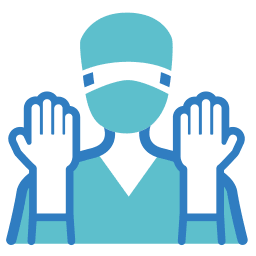TPLO Surgery
What are the signs of a torn or ruptured CCL (cranial cruciate ligament)?
It’s what we love about our dogs, the way they want to play, go for a run, or just walk around the neighborhood smelling all the smells. But, just like with humans, there are times when our four-legged friends can push themselves a little too far, resulting in injury. Or maybe they just took one wrong step on an unfamiliar surface.
Tearing or rupturing the cranial cruciate ligament (CCL) is one of the most common causes of lameness in dogs. In simplest terms, the CCL keeps the femur (thigh bone) and tibia (shin bone) together at the correct angles. When that ligament is injured, the tibia will slide forward in relation to the femur, causing pain at the knee (stifle) joint in the dog.
When testing for this type of injury, the tibia will move forward like a drawer when pressure is applied to the back of the shinbone. If there is a positive “drawer” test, it’s most likely the ligament has been worn down over a period of time instead of one traumatic event. Although it can happen in small animals, it happens more frequently in large dogs.

Tibial Plateau Leveling Osteotomy Surgery (TPLO) to the Rescue
A CCL rupture can be quite painful for your pet as each step pushes the tibia forward. Although there are ways to make your furry family member more comfortable with this kind of injury, we recommend a tibial plateau leveling osteotomy (TPLO) procedure as soon as possible. Normal recovery time is between four and six months, although your dog can resume some activities after two months.
The surgical technique begins with an incision at the joint to inspect the damage. In many cases, the injury adds extra stress on the menisci as well. This examination allows us to see the extent of the injury and remove the ends of the ligaments that have broken to reduce inflammation. Once the knee has been cleaned up, it must be stabilized.
The surgery involves a circular cut at the top of the tibia, rotating the bone to its new position (leveling), and then the knee joint is held in place by a metal plate and screws. Up to eight weeks are needed to allow the bone to heal, so your dog must avoid stairs, running, jumping on the couch, and other activities that put undue stress on the tibia must be avoided.
TPLO Surgery Recovery
Physical therapy and other therapies are available to help speed the healing process along. Although rare, it’s important to understand potential complications. In the past, issues with anesthesia were common. However, WellHaven cuts the possibilities of these problems with the latest anesthetic regimens and monitoring of vital signs.
Infections at the incision can be minimized by medication, bandages, and protective cones to prevent licking. Other complications including torn meniscus after surgery or implant failure are possible. However, this usually happens if the activity of the pet hasn’t been restricted. While the implant will completely heal if allowed to and provide long-term stability, the movement of the knee will return up to 90 percent of functionality.
As a pet owner, you want the very best for your furbaby. Throughout the process, from the initial consultation to post-operative recommendations, the WellHaven Veterinary Surgeon will make sure you understand every aspect of the TPLO procedure. We want to make sure you – and your pet – are as comfortable as possible with the surgery.
Expert Veterinary Care in Aspen
Our doctors have decades of experience and our Certified Veterinary Nurse Technicians and Assistants are ready to help. We’ve worked hard to create a welcoming environment in Aspen, including Fear Free exam rooms, for you and your pet. It can be a stressful time coming to the vet and we want to make sure you’re as comfortable as possible.
Aspen Animal Hospital is a full-service veterinary hospital that provides comprehensive veterinary services – including surgery, dentistry, internal medicine, emergency, and critical care, and nutrition. If you’d like more information about the Tibial Plateau Leveling Osteotomy Surgery, need an examination of a new furry family friend, or just want to schedule an annual exam, please don’t hesitate to call! With the latest equipment, in-house lab, and on-site pharmacy, we’re able to take care of most of your animal’s needs.